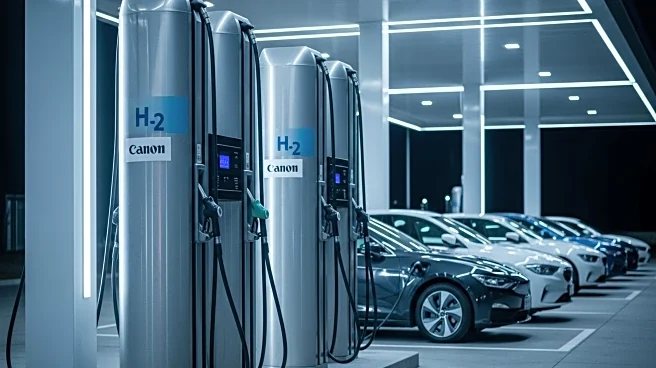What's Happening?
South Korea's ambitious plans to lead in hydrogen transportation have faced setbacks, with only 16 hydrogen police buses operational by the end of 2025, far below initial targets. The lack of sufficient hydrogen fueling stations has led to reliability issues, prompting the police to halt further purchases. This decision marks a significant shift away from hydrogen, as battery electric vehicles (BEVs) gain traction with increasing sales and infrastructure support.
Why It's Important?
The shift from hydrogen to battery electric vehicles in South Korea reflects broader global trends in transportation technology. Hydrogen's high costs and infrastructure challenges have hindered its adoption, while BEVs offer a more practical and scalable solution. This transition has implications for the automotive industry, energy policy, and environmental goals, as countries reassess their strategies for sustainable transportation.
What's Next?
South Korea's decision may influence other countries to reconsider their hydrogen transportation initiatives. As BEVs continue to gain market share, stakeholders may focus on expanding electric vehicle infrastructure and reducing costs to accelerate adoption. The evolving landscape could lead to increased investment in battery technology and renewable energy sources.
Beyond the Headlines
The failure of hydrogen transportation initiatives highlights the importance of aligning technological advancements with practical infrastructure and economic viability. This case serves as a reminder that innovation must be supported by reliable systems and market readiness to succeed.









